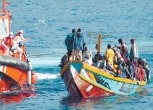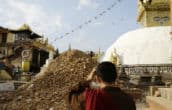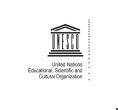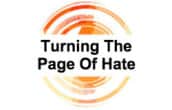|
|
News and Debates
|
| Britain’s leading tabloid newspaper, the Sun, has been carpeted by the United Nations human rights chief for describing migrants as “cockroaches” in a piece of journalism which he says is reminiscent of anti-semitic Nazi propaganda. He is not wrong. The word resonates with anyone who has charted the use of hate-speech in the Nazi era and the genocide in Rwanda 21 years ago.
By any standards the column produced by Sun columnist Katie Hopkins torched ethical standards on the need for careful, sensitive reporting of humanitarian issues.
Continue …
|
|

|
|
| A powerful earthquake shook Nepal on Saturday morning near its capital, Kathmandu, killing more than 3,800 people, leveling sections of the capital’s historic center and trapping hundreds in a 200-foot watchtower that came crashing down. Nepali authorities say the current death toll could continue to increase, as many are believed to be trapped under the rubble.
Continue …
|
|

|
|
| A recent ICFJ election-reporting workshop in Yangon, Myanmar, covered many aspects of fair coverage, and we’ve rounded up the tips. The tips apply not only to the Myanmar elections but also to election reporting everywhere. (via ICFJ) |
|
| Every year around Shakespeare’s birthday, which has also been declared World Book and Copyright Day, I see articles popping up here and there repeating some howling inaccuracies about the legal and economic concept of copyright. I get it — copyright is complex and, frankly, not all that gripping. Also, there’s that free culture movement that says all sorts of truthy-sounding things about how copyright might just be a bad thing. And we’re pro-freedom, right? On the other hand… Shakespeare!… plus all those still-alive authors I love to read, and who need to make a living. (via Medium) |
|
Newsrooms and native advertising: Why not?
| As the months have passed, I have found myself wondering why newsroom staff couldn’t do native advertising. A discussion with a mentor of mine who is a publisher at a much larger daily cemented my theory: Strong reporters who have clear guidelines by which to operate and who know how to say “no” can create native advertising. (via the Donald W. Reynolds Journalism Institute) |
|
| Writers withdraw from literary and human rights organisation’s American Center gala, citing objection to award for the French satirical magazine. (via The Guardian) |
|
| The Agahi Awards, Pakistan’s most sought after journalism awards held last week at the Pakistan National Council of Arts (PNCA) in Islamabad. Leading opinion makers, senior journalists, policy makers, diplomats, academicians, leading professionals from the media industry and representatives from think tanks attended the award ceremony. The Agahi Awards recognize and celebrate the work of dedicated journalists, promoting ethical journalism and quality reporting shaping the future of journalism. (via The Agahi Awards) |
|
Applications
|
| The Asia-Europe Foundation (ASEF) is organising the 10th ASEF Journalists’ Colloquium on Crisis/Disaster Reporting. The event will be held in Luxembourg from 4-6 November 2015. We are pleased to invite interested journalists from ASEM countries to apply for participation. Travel (by economy) to and from Luxembourg and accommodation will be provided by the organisers for successful participants. All applications should be submitted online by Tuesday, 12 May 2015.
Application information can be found here. |
|
Events
|
Riga
What Can Journalists Do About Hate? EJN panel on Sunday, 3 May 2015 at 16:00
The shocking events in Paris in January 2015 have highlighted the crisis facing journalists worldwide, both as victims of hatred and intolerance and as communicators in the frontline of a struggle to protect press freedom. There is increasing manipulation of social media and even some news media to divide communities by defining people into “us” and “them” groups, and even by inciting violence against the “other”.
Continue …
|
|

|
|
Dar es Salaam
Tanzania is organizing awareness training for media from 12th– 13th May 2015. The event is organized by International Association of Women in Radio and Television (IAWRT) Tanzania Chapter (AWRTT) in collaboration with the Ethical Journalists Network (EJN) with support from the Norwegian Ministry of Foreign Affairs .
The main objective of the Turning the Page of Hate: Challenges for Ethical Journalism in times of Conflict workshop, which is carried out in the context of the Africa-wide campaign Turning the Page of Hate and the upcoming elections, is to help the journalism community push back against editorial practice that can reinforce stereotypes, incite intense hatred and violence, and ignore the reality of violence against women at work and home.
Continue …
|
|

|
|
|
|
|
|